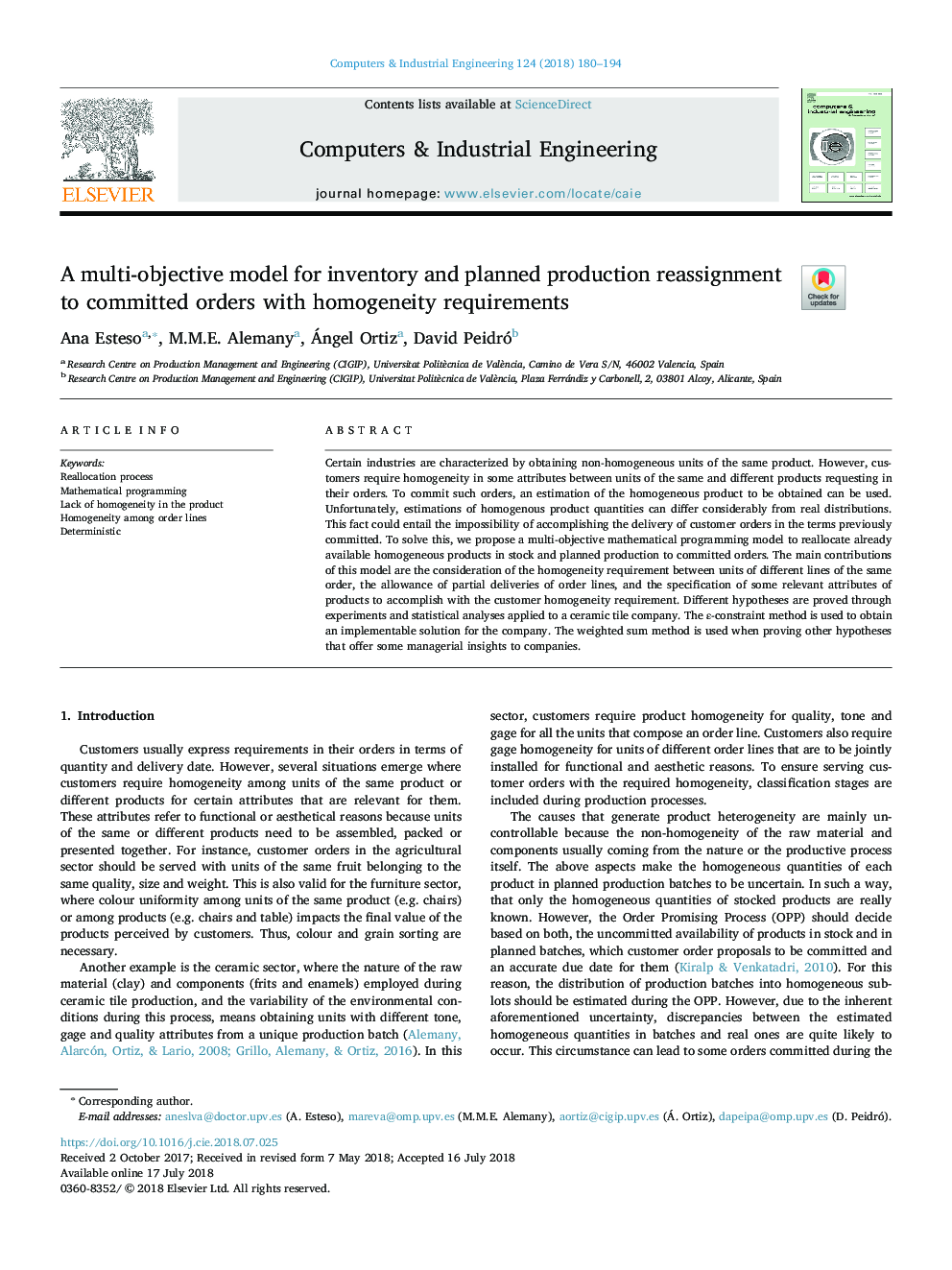| Article ID | Journal | Published Year | Pages | File Type |
|---|---|---|---|---|
| 7540627 | Computers & Industrial Engineering | 2018 | 15 Pages |
Abstract
Certain industries are characterized by obtaining non-homogeneous units of the same product. However, customers require homogeneity in some attributes between units of the same and different products requesting in their orders. To commit such orders, an estimation of the homogeneous product to be obtained can be used. Unfortunately, estimations of homogenous product quantities can differ considerably from real distributions. This fact could entail the impossibility of accomplishing the delivery of customer orders in the terms previously committed. To solve this, we propose a multi-objective mathematical programming model to reallocate already available homogeneous products in stock and planned production to committed orders. The main contributions of this model are the consideration of the homogeneity requirement between units of different lines of the same order, the allowance of partial deliveries of order lines, and the specification of some relevant attributes of products to accomplish with the customer homogeneity requirement. Different hypotheses are proved through experiments and statistical analyses applied to a ceramic tile company. The ε-constraint method is used to obtain an implementable solution for the company. The weighted sum method is used when proving other hypotheses that offer some managerial insights to companies.
Related Topics
Physical Sciences and Engineering
Engineering
Industrial and Manufacturing Engineering
Authors
Ana Esteso, M.M.E. Alemany, Ángel Ortiz, David Peidro,
